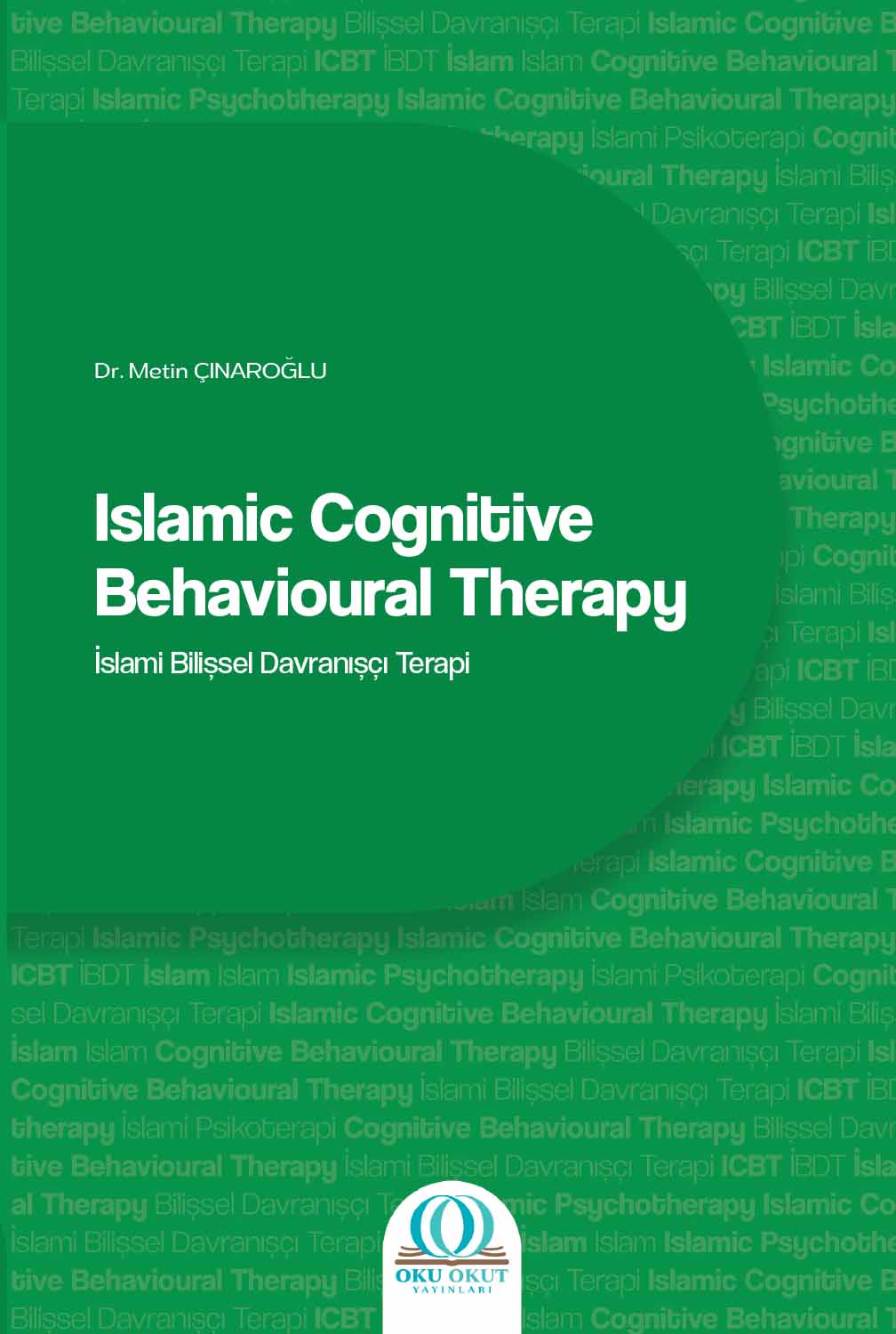Islamic Cognitive Behavioural Therapy
Islamic Cognitive Behavioural Therapy
Author(s): Metin Çınaroğlu
Subject(s): Social Sciences, Psychology, Islam studies, Cognitive Psychology, Clinical psychology, Behaviorism
Published by: Oku Okut Yayınları
Keywords: Islam; Islamic Psychotherapy; Islamic Cognitive Behavioural Therapy (ICBT);
Summary/Abstract: This seminal work presents an innovative therapeutic model that seamlessly blends the established techniques of Cognitive Behavioral Therapy (CBT) with the rich spiritual and ethical traditions of Islam. Across twelve insightful chapters, the book meticulously outlines the foundational principles of CBT, its historical evolution, and the ways in which Islamic teachings can enhance and inform therapeutic practice for Muslim patients. Beginning with a deep dive into the core concepts of CBT, the book elucidates the definition, methodology, and practical application of this evidence-based therapy. It traces the philosophical roots of CBT, highlighting the contributions of key figures in the field and charting the development of various CBT approaches that have shaped contemporary practice. This historical context sets the stage for a comprehensive exploration of Islamic perspectives on mental health, where the book examines the congruence of Islamic teachings with psychological principles.The second chapter is dedicated to the integration of Islamic concepts with mental well-being, offering a historical overview and a discussion of core principles. It presents a nuanced analysis of Quranic verses and Hadiths concerning psychological health, placing them in dialogue with Western psychological models. This is followed by an examination of the contributions of Islamic philosophy to psychology, the role of spiritual practices in promoting mental health, and the unique approaches Islam offers for coping with stress and mental health issues. The book also addresses the vital role of Islamic religious scholars in mental health support, paving the way for a future where Islamic psychology aligns with global mental health efforts and education.The heart of the book lies in its practical application. The third chapter details the ethical and practical considerations of integrating Islamic principles into CBT, from adapting CBT models with Islamic teachings to tailoring therapy to individual needs. It introduces manualized therapy protocols that provide a step-by-step guide for therapists, ensuring consistency in therapy while being responsive to the patient’s evolving needs. This section is crucial for practitioners, offering detailed strategies for cognitive restructuring, behavioral interventions, and problem-solving, all through an Islamic lens.In addressing the therapeutic relationship, the book underscores the importance of building rapport and trust, exploring the competencies required for therapists to navigate the dual roles they may play in the therapeutic setting. Ethical and professional issues such as informed consent, confidentiality, and the challenges of ethical navigation in therapy are examined in depth, ensuring that practitioners uphold the highest standards of professional conduct.Research and evaluation in Islamic-modified CBT are critical for its ongoing development and credibility. The book discusses outcome measurement, quality control, and the importance of identifying gaps in current research to advance the field. Training and supervision for practitioners are also covered, highlighting the need for rigorous training requirements and models to equip therapists with the necessary skills and knowledge.The book does not shy away from the challenges and limitations faced in practice, providing strategies for addressing common obstacles and ensuring the therapy remains effective and culturally sensitive. It concludes with a visionary chapter on future directions, emphasizing the need to expand the reach and practice of Islamic-modified CBT to better serve Muslim communities globally.In conclusion, this book is a trailblazing text that offers mental health professionals a comprehensive framework for incorporating Islamic teachings into CBT. It stands as a testament to the potential for psychological healing that honors both the empirical rigor of CBT and the spiritual richness of Islam, offering a model of therapy that is both innovative and deeply respectful of the cultural and religious backgrounds of Muslim patients. With its scholarly depth and practical guidance, the book promises to be an invaluable resource for advancing mental health care in diverse Muslim populations, encouraging a holistic approach that nurtures the mind, body, and soul.
- Print-ISBN-13: 978-625-98869-4-7
- Page Count: 165
- Publication Year: 2024
- Language: English
- Table of Content
- Introduction
- eBook-PDF

